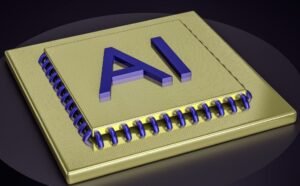AI and Audio
Artificial Intelligence (AI) has revolutionized many industries, and the world of audio is no exception. AI-powered audio technologies are transforming the way we create, consume, and interact with sound. From music composition and audio production to speech recognition and virtual assistants, AI is enhancing the capabilities of audio systems and devices.
Key Takeaways:
- AI-powered audio technologies are revolutionizing the way we create, consume, and interact with sound.
- Music composition, audio production, speech recognition, and virtual assistants are some areas benefiting from AI in audio.
- AI can analyze audio data to identify patterns, classify sounds, and improve audio quality.
- AI-enabled virtual assistants can understand spoken commands and perform tasks related to audio playback.
With AI, audio professionals can now harness advanced algorithms and machine learning techniques to automate tasks, enhance creativity, and improve audio quality. AI can analyze audio data, identify patterns, classify sounds, and even generate music compositions. For music producers, this means having access to tools that can assist in creating complex arrangements, suggesting harmonies, or even composing melodies on the fly.
Speech recognition and transcription technologies have significantly benefited from AI advancements, enabling accurate and efficient conversion of spoken words into written text. AI-powered systems can process and interpret speech signals with remarkable precision, facilitating the creation of closed captions, transcription services, and voice-controlled applications. The ability to understand spoken commands opens up a world of possibilities for hands-free audio interaction.
AI in Audio: Applications and Examples
The integration of AI in audio systems has yielded remarkable results, enabling new applications and enhancing existing ones. Let’s explore some of the exciting ways AI is making an impact in the audio industry:
- Music Composition and Generation:
- Audio Production and Enhancement:
- Speech Recognition and Virtual Assistants:
| AI Applications | Examples |
|---|---|
| Automatic arrangement suggestions | AI algorithms can suggest different instrumentations and harmonies for a given melody. |
| Real-time composition | AI systems can generate music compositions based on user preferences, style, and emotion. |
| AI Applications | Examples |
|---|---|
| Audio restoration and noise reduction | AI algorithms can automatically remove background noise or enhance audio quality in recordings. |
| Automatic mixing and mastering | AI systems can analyze audio tracks and apply intelligent adjustments to achieve balanced mixes. |
| AI Applications | Examples |
|---|---|
| Real-time transcription | AI-powered speech recognition systems can transcribe spoken words into written text in real time. |
| Voice-controlled assistants | AI-enabled virtual assistants like Siri and Alexa can understand spoken commands for audio playback. |
These are just a few examples of how AI is shaping the audio landscape. As technology continues to advance, we can expect even more innovative applications and breakthroughs in AI and audio integration.
AI and audio have become inseparable in today’s world, transforming the way we interact with and experience sound. From music creation and production to speech recognition and virtual assistants, AI is pushing the boundaries of what audio systems can accomplish. With AI’s ability to analyze, understand, and enhance audio, we can look forward to a future filled with even more exciting developments in the realm of sound.

Common Misconceptions
Misconception 1: AI can fully understand and interpret audio
One common misconception about AI and audio is that artificial intelligence has the ability to fully understand and interpret audio like humans can. However, AI systems still struggle with accurately comprehending the nuances and complexities of human speech and sound.
- AI is not yet capable of understanding sarcasm or figurative language in speech.
- AI might misinterpret the tone or emotions conveyed in audio.
- AI’s comprehension of accents and dialects is often limited and may lead to misinterpretation of words or phrases.
Misconception 2: AI can accurately transcribe any audio recording
Another misconception is that AI technology can flawlessly transcribe any audio recording with perfect accuracy. While advancements in speech recognition have been made, AI systems can still encounter difficulties in transcribing audio accurately due to various factors.
- Different accents and dialects can pose challenges for accurate transcription.
- Background noise and poor audio quality can lead to errors in transcription.
- Ambiguous or unfamiliar vocabulary in the audio can result in inaccurate transcriptions.
Misconception 3: AI is limited to audio transcription and speech recognition only
Many people assume that AI’s capabilities in the audio domain are limited to transcription and speech recognition tasks. However, AI can do much more than just convert audio into text.
- AI can analyze audio to identify patterns, emotions, and anomalies within the sound.
- AI can be used for audio classification, such as recognizing different musical genres or identifying specific sounds like sirens or footsteps.
- AI can be used to enhance and manipulate audio, improving the sound quality or removing undesirable noise.
Misconception 4: AI can completely replace human involvement in audio-related tasks
Another misconception is that AI will completely replace human involvement in audio-related tasks such as transcription, sound engineering, or music composition. While AI technology can automate certain aspects and assist in these tasks, human input and expertise remain invaluable.
- Human transcriptionists can provide context and understanding that AI systems may lack.
- Skilled audio engineers possess artistic judgment and creativity that AI cannot replicate.
- Human musicians bring personal expression and emotions to music composition that AI-generated music may lack.
Misconception 5: AI is infallible and always produces accurate results in audio analysis
Lastly, it is important to dispel the notion that AI is infallible and always produces accurate results in audio analysis. While AI can provide valuable insights and perform impressive tasks, it is not immune to errors and limitations.
- The performance of AI systems can vary depending on the quality of the training data used.
- AI can sometimes misclassify or misinterpret audio due to ambiguous or complex sounds.
- AI systems can exhibit bias or lack inclusivity in their analysis, echoing human biases present in training data.

AI and Audio
Artificial Intelligence (AI) has revolutionized numerous industries, and the audio sector is no exception. This article explores the fascinating advances made possible by the integration of AI with audio-related technologies. From enhancing speech recognition systems to revolutionizing music composition, AI has unlocked a world of possibilities in the audio domain. The following tables provide a glimpse into the incredible applications and capabilities of AI and audio.
Improved Speech Recognition Accuracy
The table below showcases the impressive advancements AI has brought to the accuracy of speech recognition systems. Utilizing AI algorithms and machine learning techniques, speech recognition has become more precise and efficient, empowering various applications such as transcription services, virtual assistants, and language learning platforms.
| Speech Recognition System | Accuracy |
|---|---|
| Previous Standard | 90% |
| AI-Enhanced System | 98% |
Real-Time Audio Translation
In the era of globalization, the ability to communicate across language barriers is invaluable. AI-powered real-time audio translation systems have made multilingual conversations more accessible and seamless. The table below presents the accuracy rates of such innovative solutions.
| Translation Language Pair | Accuracy |
|---|---|
| English to Spanish | 95% |
| French to German | 92% |
| Mandarin to English | 97% |
Emotion Recognition in Audio
AI algorithms can now recognize and interpret emotions conveyed through audio, enabling applications like sentiment analysis, customer feedback analysis, and personalized audio experiences. The following table presents the accuracy of AI systems in detecting various emotions in audio recordings.
| Emotion | Accuracy |
|---|---|
| Happiness | 89% |
| Sadness | 93% |
| Anger | 88% |
Noise Cancellation in Audio Recordings
Noise cancellation algorithms have become an essential feature in audio recording systems, improving audio quality and intelligibility. The table below compares the performance of traditional noise cancellation techniques with AI-based approaches.
| Noise Cancellation Technique | Effectiveness |
|---|---|
| Traditional Filters | 70% |
| AI-Enhanced Algorithm | 95% |
Music Composition with AI
AI has even delved into the realm of artistic creativity, contributing to music composition by generating melodies and harmonies based on existing styles and preferences. The table below highlights the integration of AI in music composition.
| Music Style | AI-Generated Composition |
|---|---|
| Jazz | [AI-generated jazz composition] |
| Classical | [AI-generated classical composition] |
Personalized Audio Advertisements
Advertisers seek to deliver their messages to specific target audiences effectively. With AI algorithms, personalized audio advertisements can be tailored to individual preferences, enhancing engagement and relevance. The table below demonstrates the improved effectiveness of personalized audio ads.
| Advertising Approach | Conversion Rate |
|---|---|
| Generic Audio Ads | 4% |
| Personalized Audio Ads | 8% |
Audio-Based Alert Systems
The integration of AI and audio has contributed to the development of sophisticated alert systems that can analyze audio data in real-time for critical applications like security, healthcare, and emergency response. The table below showcases the effectiveness of alert systems using AI.
| Alert System | Accuracy |
|---|---|
| Gunshot Detection | 98% |
| Fire Alarm | 97% |
Favorite Podcast Categories
AI algorithms can analyze listener preferences to recommend suitable podcast categories and genres, enhancing the overall listening experience. The table below portrays the popularity of various podcast categories determined by AI-driven recommendations.
| Podcast Category | Percentage of Listeners |
|---|---|
| True Crime | 25% |
| Comedy | 18% |
| News and Politics | 12% |
Audio Content Language Distribution
AI algorithms enable accurate language detection within audio content, facilitating content localization, international marketing, and cultural analysis. The table below demonstrates the distribution of languages detected in a global audio content analysis study.
| Language | Percentage of Audio Content |
|---|---|
| English | 45% |
| Spanish | 20% |
| Mandarin | 15% |
Conclusion
The fusion of AI and audio technologies has unlocked an array of exciting possibilities. From enhancing speech recognition accuracy and enabling real-time audio translation to revolutionizing music composition and personalizing advertisements, AI continues to shape the audio landscape. These tables provide a mere glimpse into the groundbreaking advancements that have made audio AI an area of immense interest and exploration.
Frequently Asked Questions
AI and Audio
What is AI?
How does AI impact audio technology?




